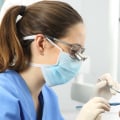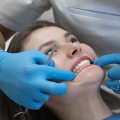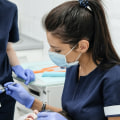The dental hygienist can provide services without the supervision of a dentist in public health settings, including, but not limited to, hospitals, medical centers, schools, and community clinics. When you go to the dentist, the first person you see is usually the dental hygienist. Just as there are doctors and nurses in hospitals, there are dentists and dental hygienists in dental offices. Understanding what each person is doing can help you feel more comfortable during your next appointment.
We looked at the difference between the dentist and the dental hygienist and what you should expect from both. Your appointment with a dental hygienist may coincide with treatments provided by your general dentist. Often, your dentist may refer you to a hygienist so that the two professionals can work together to ensure that your mouth is generally healthy. Your dentist will often recommend that you book regular independent sessions with your dental hygienist without having to see your dentist at the same time.
Hygienists can see their own patients, administer local anesthesia (at least in most states) and give you advice, as long as you also go to the dentist for an exam at least once a year. Periodontists, who focus on treating gum disease and other gum concerns, are just one example of dental specialists. D) A dental hygienist may not diagnose a dental disease or condition, determine any treatment or treatment regimen outside the scope of dental hygiene, prescribe or order medications, or perform any procedure that involves intentionally cutting the soft or hard tissues of the mouth by any means. The hygienist probes and cleans the patient for presentation to the doctor for diagnosis and treatment planning.
One of the main differences between a dentist and a dental hygienist is their academic background. Dental hygienists perform much of their work independently, with only general supervision from a licensed dentist. What is particularly important is that the program in which a person participates is accredited by the Dental Accreditation Commission. Some dentists receive additional training after dental school that allows them to specialize and provide care for certain conditions to patients.
Your dentist will stay informed of your ongoing treatments with your dental hygienist so that when you book your next checkup you are fully up to date with your progress. The purpose of a hygiene treatment is to remove tartar from tooth surfaces; only a dental professional can scrape or remove it, as it is too difficult to remove with regular brushing and flossing. Once your teeth have been cleaned, the dentist will come and receive the hygienist's opinion about your oral health. Both associate degree (two-year) and undergraduate (four-year) programs qualify a person to take the test and become a licensed dental hygienist.
Some hygienists reading this will be on the phone right now to talk to their dental exam board or other important legislative branch to see if all of this is true.



